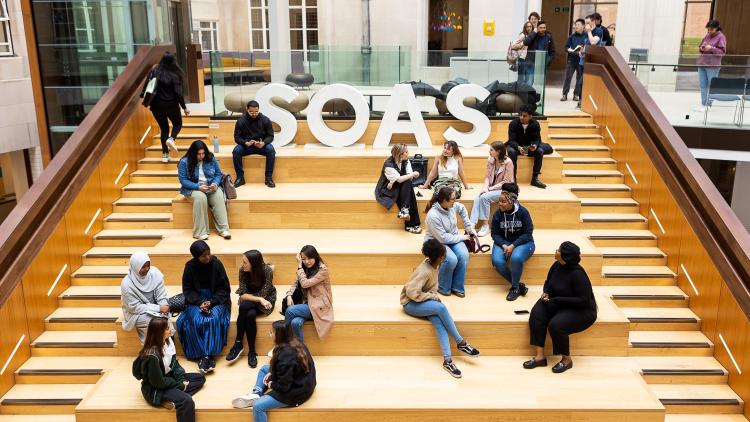NO, RCTs are not public goods. And YES, they have a colonial problem


Randomized Control Trials have become very popular in development economics, but their impact is controversial. Postgraduate student Gayathri Arvind explores the ethical issues with RCTs, questioning their political neutrality and whether they can be applied universally.
Randomized Control Trials (RCTs) have been lauded as the new gold standard in Development Economics that have created a revolution in the discipline. Esther Duflo has mentioned that these trials must be internationally funded because they are “international public goods”.
But there is nothing global or public about this specific statistical method, whose politics is often obscured with an air of apoliticism by those who push for it. It is just the same old wine that has been pushed towards “developing” countries, in a shiny new bottle, with a lot of fancy mathematics to go with it.
Asking the wrong questions
First, let us start with how the very nature of RCTs is political. The scope of an RCT’s question is restricted to what the trial is about.
From asking big questions like what the structures that cause poverty are, we have moved on to asking if poor people’s lives can be marginally better if we provide them with mosquito nets or deworming tablets!
While these are important provisions, economists also need to ask those bigger questions with no clear answers. To put it (probably too) simply, it is like singing a 5-minute break-up song to get over a 5-year-old relationship, without acknowledging and working on your broader feelings. In that vein, “Band aids cannot fix bullet holes”, like econ pundits’ most favourite billionaire Taylor Swift once rightly sang.
If we look further, we can also notice that RCTs are individualizing development, leaving the neo-liberal way of thinking about development unquestioned, probably the reason why it is being championed by international institutions and donors all over the world. RCTs are inherently political and mimic the colonial history of western powers (eg: international aid agencies) deciding what is good (the interventions that are pushed) for the local population.
Why RCTs fail as global public goods
Secondly, RCTs are not and cannot be a global public good. The main criticism against RCTs is that they have limited external validity. Even though the problem of external validity is recognized, it is often left unaddressed in most publications. By definition, a global public good is one “whose benefits affect all citizens of the world”.
But in the case of RCTs, precisely because they concentrate on a unique local setting, they cannot be scaled up easily.
Arguing along those lines, they cannot be considered “global public goods” and assuming them to be so mimics the logic behind ‘one size fits all’ Structural Adjustment Programs pushed by the IMF in the past. Even though these ‘interventions’ are markedly different, they also have a similar line running through them: An intervention that agrees with the dominant political ideology (that fits with donor interests) can be implemented, and at times even scaled up and pushed everywhere, without accounting for complex local differences and different institutional and social structures.
RCTs and its ethical blind spots
Finally, let us discuss the ethics behind RCTs. The process of learning and change is complex and happens through a democratic process of interaction between policies and the political economy. An RCT by construction assumes that a person in the middle of a burning house can be saved without putting out the fire in the building around them. The disregard for structural issues, a fundamental flaw in the new development paradigm, reveals a limited and incomplete understanding of the complexities at play.
We ignore that people are a product of the structures that they live in, and we cannot expect them to be the bastions of change when the entire building is on fire.
Let us take the case of RCTs in education. RCT advocates in India say that students must be “Taught at the right level (TaRL)”. If a student in class 7 cannot read at class 5 level, then they must be taught that first. While this is important, it cannot solve the crisis of foundational education in the country. It was found that students dropped out of school for various reasons including but not limited to marriage, caste-based disadvantages, paid work, etc.
Teaching at the right level might help students in the short-term, but if these wider issues are not addressed, it is unlikely to have a significant impact on educational outcomes. Focusing on narrow objectives, while ignoring how a student is treated in school due to their social location, or their access to healthcare, transport etc. that might impede their education, would make a trial devoid of any equity considerations.
Further, when deciding to do an RCT, people are randomly assigned to either the control group or the intervention group. The concept of equipoise has played a very important role in clinical research RCTs. At its core, it states that a medical practitioner cannot prescribe a medicine if they know there is something better out there. So, if a clinical trial is undertaken, it means that there exists “a state of genuine uncertainty on the part of the clinical investigator regarding the comparative therapeutic merits of each arm in a trial.”
In Economic RCTs, this principle is quite often not explicitly addressed. This paper, states the example of the Massachusetts Bail Fund randomly providing a few inmates with $500 as bail money. We have evidence to show that people out of jail can better fight cases against them, and we also know the racial inequalities when it comes to incarceration in the country. Given this, it is unethical to randomly provide only a portion of the inmates with this fund, under the principle of equipoise. Further, it is also unethical if the control group is affected adversely by an intervention.
Unintended Consequences and Long-Term Impacts
If the argument is that the interventions of economists are benign and will not cause any harm if they fail, then it makes no sense to invest so much money into costly RCTs, calling them global public goods. But even if not, that is not a valid line of argument since RCTs, because of the collective and political nature of everyday life, will almost always have unintended consequences.
Not just that, the long-term general equilibrium impacts of RCTs are not easy to tease out and are often not considered. While RCTs can be useful, the right method is always the one that works best for the question we have in hand.
The influence of aid on RCTs, its individualistic answers to structural issues, ahistorical methodology, ignorance of local context and ethical murkiness are just a few important issues to consider.
Ignoring this and championing RCTs as the gold standard gives the impression that development experts are imposing their own values and perspectives under the pretext of global benevolence, when their interventions may neither be universally applicable nor genuinely altruistic.
Header Image Credit: Myriam Zilles via Unsplash.
About the author
Gayathri Arvind is an MSc Economics student at SOAS, University of London.




